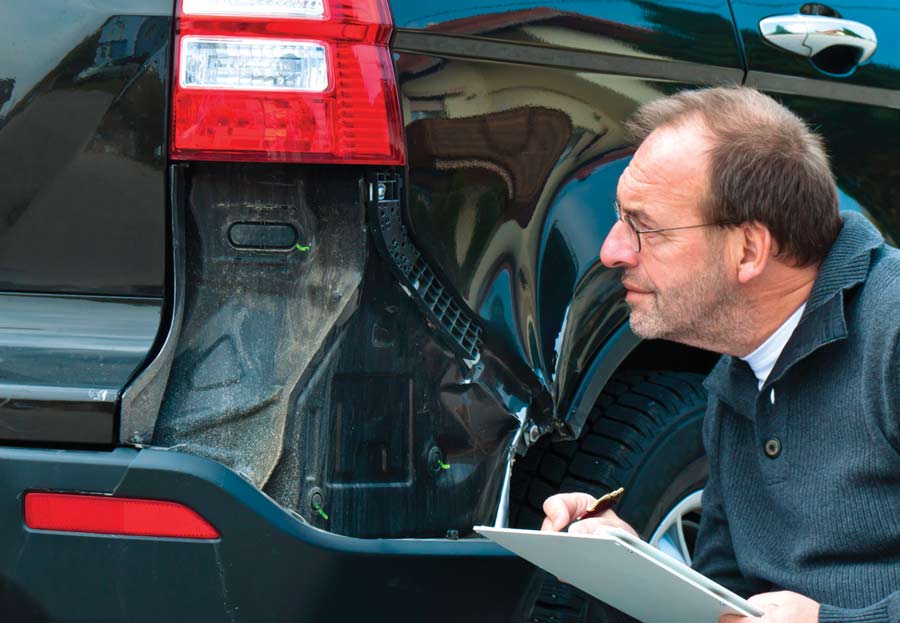BY MIKE MARROCCOLI
 In today's environment, it is more important than ever that limousine and bus operators understand the importance of having a solid loss-control program in place to protect your business. Why? Because your company's survival may be at stake.
In today's environment, it is more important than ever that limousine and bus operators understand the importance of having a solid loss-control program in place to protect your business. Why? Because your company's survival may be at stake. Understanding the necessity of this fundamental program is key to growing and maintaining a profitable operation. The current public transportation insurance marketplace is volatile: We are still suffering through a “hard market" characterized by carriers' increasing premiums and insurance underwriters' scrutiny of all facets of an operation.
Over the past five years, a significant number of insurance companies have withdrawn from the market. The reasons are quite simple: They were unprofitable and felt that insurance premiums were insufficient, given the exposures of the passenger transportation industry. Currently, the carriers that remain are extremely cautious or have instituted limitations and restrictive criteria for the type of fleets that they are willing to insure. This change in the supply side of limousine and bus insurance has resulted in difficulties throughout the industry, most notably, an increase in premiums. Unfortunately, it may also mean that obtaining insurance could become more challenging, with some operators who have had poor loss experience unable to secure coverage at all, thus forcing them out of business in the most extreme cases.
Many who have been in the public transportation industry for a while may recall a time, about 15 years ago, when we faced the same hard market. Surviving this cycle requires that you take action to make certain that your company has a loss-control program in place that will result in less claim activity, and develop a culture of safety within your organization that will be evident to everyone who interacts with your company: employees, drivers, customers, and insurance carriers.
In the current insurance market, SAFETY is the key to your company's survival and continued success!
As an owner or senior manager, you certainly understand that insurance is a significant part of your overhead cost impacting your pricing model, budget, and profit margin. Professional management teams should be planning ahead and budgeting time and resources for loss-control programs that will assist you in preventing claims.
We are still suffering through a 'hard market' characterized by carriers' increasing premiums and insurance underwriters' scrutiny of all facets of an operation.A good track record with regard to claims does not just happen by accident: You must make a concerted effort to put together safety measures that ensure good performance of your company in the eyes of the insurance carrier.
In the insurance industry, it is often said that claim frequency leads to severity: This theory has proven to be accurate. Don't make the error of downplaying driver history over frequency—even with minor accidents—because this will eventually result in a large claim that can destroy your business. I have witnessed firsthand many instances in which an underwriter has requested that a chauffeur be removed from driving duties due to frequent minor accidents, only to have the owner or management team fight to keep the individual in question because it's tough to attract and retain good chauffeurs. Companies have often kept the chauffeur in question, resulting in yet another accident, which caused more serious property damage and bodily injury. Most of the time, the judgments of the underwriters are correct, and removal of a chauffeur is in the best interest of your loss experience and, of course, that of the insurance carrier.
In addition, a serious claim can harm your company's reputation. If an accident occurs that results in significant injuries or death, the negative publicity can cause irreparable damage to your company. In today's era of instant information dissemination, you can be sure that a tragic accident will become part of the headline story on your local news and will be posted throughout social media.
So what are the steps you should take to ensure that your company has built a strong loss-control program? Above all, you need to be organized and detailed in your approach to a good safety program. Here are some ideas that you should consider:
1. Driver qualification and hiring process. Have a detailed application for all chauffeurs to complete that includes prior driving experience. Hiring chauffeurs with previous commercial driving experience in your service area will help reduce the chances of crashes. Review chauffeurs' state motor vehicle reports prior to interviewing. Require all prospective chauffeurs to be road-tested prior to hire. You should also conduct drug and alcohol testing and criminal background checks. Implement a probationary period during which you can continue to evaluate the driver, and require a drive-along experience with a chauffeur trainer or senior manager so that they understand the standards and behavior expected of professional chauffeurs. You should keep two separate files for each new hire: One containing personnel information, and a second documenting drug and alcohol testing.
 2. Chauffeur training. You must implement an ongoing safety training program for all chauffeurs. It is recommended that you have organized meetings at regular intervals to communicate safety standards and safety issues. Most insurers will assist you in providing video programs and/or written materials for your training programs. Printed safety bulletins can be distributed to chauffeurs in paycheck envelopes (or online through your payroll system) or during meetings. Another option is online driver training, which provides chauffeurs with videos, followed by a quiz to determine their information retention. A safety handbook is another good resource. I provide my clients with a sample employee handbook and safety manual, both of which serve as a good basis for a customized handbook, but should be reviewed by your attorney before implementing. This handbook should detail policies and procedures for your chauffeurs to follow regarding almost every aspect of their job: from accident reporting procedures to driver behavior and dress code. A manual detailing these issues will provide written guidelines for chauffeurs and employees, and will assist you in building a strong culture of safety within your organization. You also may want to consider a safe driver incentive and mentoring programs. Since your business is dependent on professional chauffeurs, you must demonstrate a commitment to strict hiring and training programs. This will also result in higher driving-staff retention.
2. Chauffeur training. You must implement an ongoing safety training program for all chauffeurs. It is recommended that you have organized meetings at regular intervals to communicate safety standards and safety issues. Most insurers will assist you in providing video programs and/or written materials for your training programs. Printed safety bulletins can be distributed to chauffeurs in paycheck envelopes (or online through your payroll system) or during meetings. Another option is online driver training, which provides chauffeurs with videos, followed by a quiz to determine their information retention. A safety handbook is another good resource. I provide my clients with a sample employee handbook and safety manual, both of which serve as a good basis for a customized handbook, but should be reviewed by your attorney before implementing. This handbook should detail policies and procedures for your chauffeurs to follow regarding almost every aspect of their job: from accident reporting procedures to driver behavior and dress code. A manual detailing these issues will provide written guidelines for chauffeurs and employees, and will assist you in building a strong culture of safety within your organization. You also may want to consider a safe driver incentive and mentoring programs. Since your business is dependent on professional chauffeurs, you must demonstrate a commitment to strict hiring and training programs. This will also result in higher driving-staff retention. 3. Monitor MVRs on a regular basis. Enroll in a license-monitoring program that will advise you of any serious violations or accidents involving your chauffeurs, so you aren't unpleasantly surprised at insurance renewal time.
4. Vehicle maintenance. Require all chauffeurs to complete a vehicle condition report each day. Monitor mileage and any issues with vehicle conditions or repairs, and have management review them daily. Schedule complete vehicle maintenance and inspection at regular intervals. Track maintenance of vehicles by mileage. Be sure to have all vehicles maintained and repaired by a qualified, reputable, and experienced mechanic.
 5. Accident investigation protocol and review. Your management team should have a detailed process to follow when any accident occurs. A detailed accident investigation should include reviews of the police report and a formal interview with the chauffeur, who should provide a statement of how the accident occurred, and include details from any passengers or witnesses. The insurance carrier should be notified immediately once you are aware of any accident. Insurance companies have experience in mitigating damages and assisting in faster settlement of claims for you and or any other party involved. A follow-up interview should be scheduled with the chauffeur to determine if the accident was preventable and if additional training is necessary. All information should be documented in the accident file.
5. Accident investigation protocol and review. Your management team should have a detailed process to follow when any accident occurs. A detailed accident investigation should include reviews of the police report and a formal interview with the chauffeur, who should provide a statement of how the accident occurred, and include details from any passengers or witnesses. The insurance carrier should be notified immediately once you are aware of any accident. Insurance companies have experience in mitigating damages and assisting in faster settlement of claims for you and or any other party involved. A follow-up interview should be scheduled with the chauffeur to determine if the accident was preventable and if additional training is necessary. All information should be documented in the accident file. 6. Review your loss runs. Your insurance broker can provide you with a copy of your loss runs, the list of all claims made against your policy. A review of this information will show any open claims, paid closed claims, and a status and description of all reported claims. As a management tool, a review of this information is quite helpful in identifying any trends in the causes of accidents. If it is determined that there are apparent trends, management should address these issues in your chauffeur training program.
Identifiable leading causes of ACCIDENTS/TRENDS according to National Highway Traffic Safety Administration
7. Use technology. Fleet management technology, including event recording equipment and GPS tracking, will provide you with valuable information about your vehicles and chauffeur behavior. Today's event-recording devices can provide data and video on any incident involving your vehicle, including accidents and hard braking. This captured information can be invaluable to your insurance company when defending you in the event of an accident. GPS tracking will also keep you updated on the speed and location of your vehicles at all times. This can be utilized to prevent chauffeurs from driving at excessive speed or using the vehicles for unauthorized trips, and can assist in improved fuel economy. - Following too closely
- Rear-end collisions
- Failure to yield at intersections
- Driving too fast for conditions
- Backing up inattentively
- Distracted driving
- Inexperienced driving
- Failure to yield to pedestrians/bikes
- Driver fatigue
- Speeding
These are just some of the areas to consider in order to assist you in operating a safer and more cost-effective luxury transportation company. Implementation will result in improved driver retention and profitability. Remember, your employees and all of your chauffeurs must understand that your livelihood—and their livelihood—is at stake every day. By utilizing a comprehensive loss-control program, you will provide your customers with the security of reliable transportation, your employees with pride in being part of an efficient organization, and yourself with the best opportunity to insure your operation at the most competitive pricing with an insurance carrier that will recognize your professionalism and commitment to safety. [CD0218]
Mike Marroccoli, CIC, MBA, is a Regional Vice President with The Capacity Group. He can be reached at mmarroccoli@capcoverage.com.

